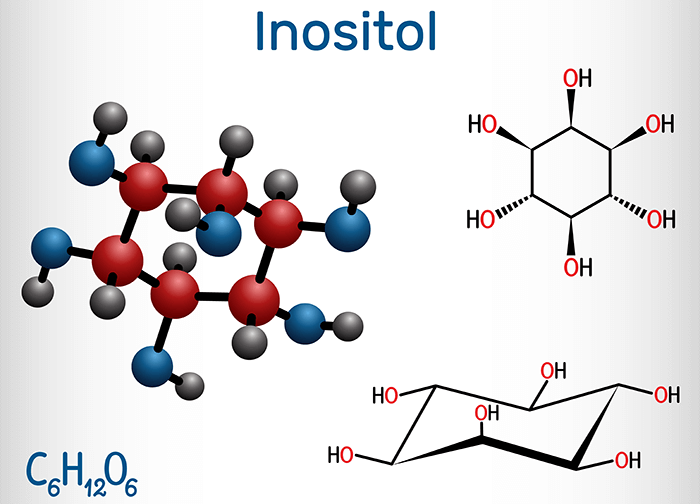- +033 2572 7171
- info@dhanvantary.com

4.5 Rating | 4500 Review

4.5 Rating | 4500 Review
Inositol is classified as a member of the B complex vitamins and is often referred to as vitamin B8. It is necessary in small quantities for the proper functioning of the body. Inositol is found in all bodily tissues, with the highest concentrations located in the heart, brain, and eye lens. Being water-soluble, the body cannot store inositol, necessitating its daily intake through diet to prevent depletion and deficiencies. The functions of inositol are closely associated with choline, a key component of cell membranes.

The daily recommended intake of inositol is not explicitly defined; however, supplements typically contain 500 milligrams of inositol per day.
Regarding the side effects associated with inositol, while the toxic effects of excessive dosages remain unclear, individuals may experience skin reactions and diarrhea as potential adverse effects.
